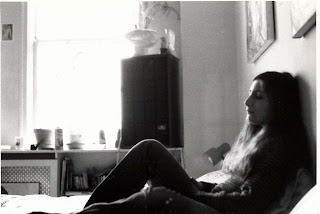In my early twenties, I lived with a voracious reader. He infected me with his serial passions. First came Henry Miller, then Charles Bukowski, then John Fante, then Louis-Ferdinand Céline. Céline is that exceedingly rare writer whose work is exquisite in whole AND in part.
Céline's hero begins his adventures by joining the army in France, during World War I. From there he works in the African jungle and Detroit, Michigan before returning to France. Along his way, in circumstances mundane and terrifying, he maintains both openness to experience and detachment from it, a god-like clarity.
The passages below are quoted from Ralph Manheim's translation from the french.
San Francisco, 1992
I never saw Princhard again. He had the same trouble as all intellectuals—he was ineffectual. He knew too many things, and they confused him. He needed all sorts of gimmicks to steam him up, help make up his mind.
Tokyo, 2007
"You're already far away, Ferdinand. You're doing exactly what you want, aren't you? That's the main thing. It's the only thing that counts . . ."
The train pulled in. I wasn't so sure of my plans once I saw the engine. I kissed Molly with all the spirit I had left . . . I was sad for once, really sad, for everybody, for myself, for her, for everybody.
Maybe that’s what we look for all our lives, the worst possible grief, to make us truly ourselves before we die.
Tokyo, 2007
The worst part is wondering how you’ll find the strength tomorrow to go on doing what you did today and have been doing for much too long, where you’ll find the strength for all that stupid running around, those projects that come to nothing, those attempts to escape from crushing necessity, which always founder and serve only to convince you one more time that destiny is implacable, that every night will find you down and out, crushed by the dread of more and more sordid and insecure tomorrows.
San Francisco, 2003
I thought being in love with somebody as adorable as Musyne would give me every kind of strength and virtue, especially the courage I lacked, just because she was so pretty and such a gifted musician. Love is like liquor, the drunker and more impotent you are, the stronger and smarter you think yourself and the surer you are of your rights.
New York, 1986
Just plain living, what a drag! Life is a classroom, and boredom is the monitor, always keeping an eye on you, you have to look busy at all costs, busy with something fascinating, otherwise he comes and corrodes your brain. A day that’s nothing more than a lapse of twenty-four hours is intolerable. Like it or not, a day should be one long, almost unbearable pleasure, one long coitus.
Disgusting thoughts of this kind come to you when you’re crazed by necessity, when a desire for a thousand other things and places is squeezed into each one of your seconds.
Canadian, Texas 1987
A room changes in a few months, even if you don’t move anything. Old and rundown as things may be, they still find the strength, the Lord knows where, to get older. Everything had changed around us. Not that anything had moved, no, of course not, the things themselves had actually, changed, in depth. Things are different when you go back to them, they seem to have more power to enter into us more sadly, more deeply, more gently than before, to merge with the death which is slowly, pleasantly, sneakily growing inside us, and which we train ourselves to resist a little less each day. From moment to moment, we see life languishing, shriveling inside us, and with it the things and people who may have been commonplace or precious or imposing when we last left them. Fear of the end has marked all that with its wrinkles, while we were chasing around town in search of pleasure or bread.
Soon our past will be attended only by inoffensive, pathetic, disarmed things and people, mistakes with nothing to say for themselves.
Philadelphia, 1982
Speaking of the past, what I remembered best when I was in good spirits was Molly, like the echo of a clock striking in the distance. When something pleasant popped into my mind, I always thought of her.
After all, when our egoism lets us go for a while, when it comes time to throw it off, the only women whose memory you cherish in your hearts are the ones who really loved men a little, not just one man, even if it was you, but the whole lot.
San Francisco, 2003
When you’re not used to the comfort and luxuries of the table, they go to your head in no time. Truth is always glad to leave you. With next to no encouragement it will set you free. And we manage very nicely without it. Amid this sudden plethora of comforts a fine meglomaniacal delirium finds no difficulty in overwhelming you.
New York, 1984
Far in the distance the tugboat whistled; its call passed the bridge, one more arch, then another, the lock, another bridge, farther and farther . . . It was summoning all the barges on the river, every last one, and the whole city and the sky and the countryside and ourselves, to carry us all away, the Seine too—and that would be the end of us.










No comments:
Post a Comment